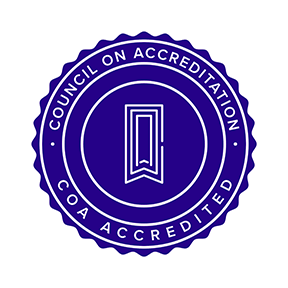

15-year-old Felix has been fending for himself or moving from placement to placement in foster care his whole life. He and his siblings were removed from their parents due to neglect and were scattered throughout the foster care system when he was just 8 years of age. His mother moved out of the state and his father’s whereabouts are unknown.
Felix got to know his brother, Antonio (18), at family visits. As a teenager, Antonio was placed into a foster family home and they became his legal guardian. Felix, however, was 12 years old when he was placed into congregate care on one of Trinity Youth Service’s Short-Term Residential Therapeutic Program campuses (STRTP).
Felix’s dorm supervisor describes him as outgoing and self-confident. He advocates very well for himself and loves and cares for animals. One day, he would like to become a veterinarian. He likes shopping, playing video games, watching movies, and going on outings.
Getting to know his older brother and hearing about the home and family he has come to love, Felix naturally wanted that too. With the help of Trinity staff, Felix got his wish and was placed into the same foster family home as his brother after spending 22 months in placement on the STRTP campus. He is so happy in his new home and would like his foster parent to be his legal guardian one day.
Felix says he is grateful to Trinity’s staff for caring for him and not giving up on him. We are so thrilled to have been able to help Felix obtain permanency, a family, and a loving home. He looks forward to continuing bonding with his brother and playing video games with him. He hopes one day they can get an apartment together and is so grateful to be reunited with him.
Names have been changed to protect the privacy of the youth.
 Jenelle Phillips, Director of Development
Jenelle Phillips, Director of Development
Jenelle’s role is to access and identify resources for youth in our care. She is also responsible for maintaining a distinctive look and voice for Trinity through our online presence, media and community outreach. Before joining the Trinity team in 2016, Jenelle worked in publishing for nearly a decade as a graphic designer, photographer, writer and editor. Jenelle earned a bachelor’s degree in communications at California State University Fullerton and has won several awards throughout her career including a few from the National Newspaper Association. Jenelle is also very involved in her community and is active in her church.

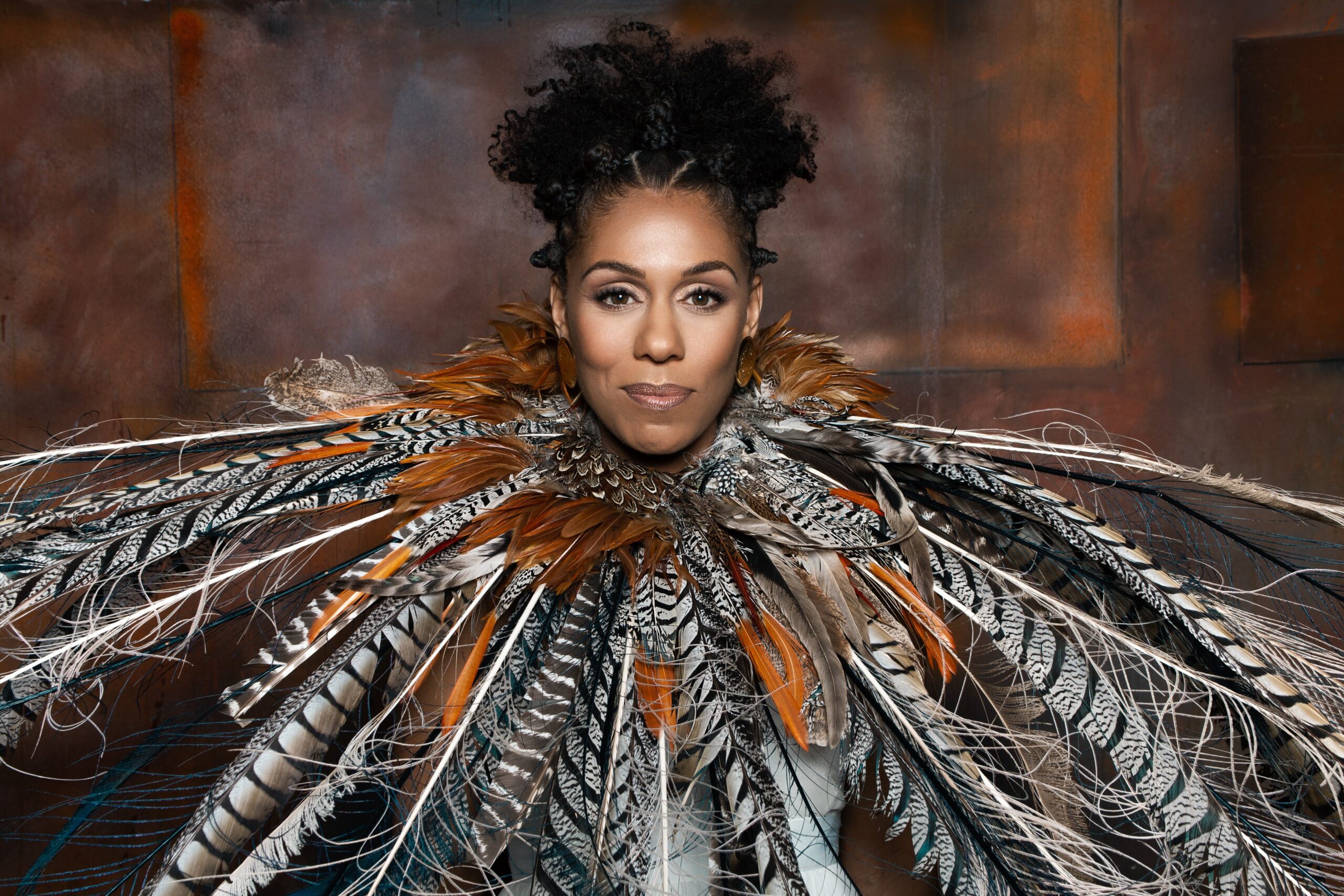
Princess Sarah Culberson is an African princess whose inspiring life story has touched the lives of millions around the world. After learning about Trinity Youth Services’ mission to create better futures for foster youth, she sent a very motivational message for potential and current foster parents as well as foster youth, stating, “My foster parents made such a huge impact in my life.” To hear more of Princess Sarah’s message, watch the video below.
A renowned dancer, actress, philanthropist, educator, motivational speaker, and author, Princess Sarah was born in Morgantown, West Virginia, to an African father and a Caucasian mother. She was placed in foster care as an infant, and was adopted by a loving Caucasian family one year after her first birthday.
Princess Sarah’s adoptive family showered her with unconditional love and support throughout her childhood, and took a very active role in her life. According to Princess Sarah, “They were just extremely checked in, saw my skills and talents and supported those and with anything that was challenging to me, they helped me figure it out and supported me as well. They noticed that I was a great dancer, athlete, that I loved acting, singing, enjoyed performing etc., and loved and supported me.
“I didn’t like math, so my dad would help me for hours every week. They were so checked in as parents which was extraordinary. My mom wanted to make sure I didn’t always feel different, and so as a girl with all this afro hair, she learned how to braid, take care of my hair which was different, and she knew that was important for me as well. The actions they took spoke volumes. Even though elementary and middle school were not as diverse, the university where my dad was a professor was diverse with Dr. Hilluala from India, Professors from Thailand, which allowed me to be in contact with more diverse people, which I loved seeing as a child.”
According to Princess Sarah, some of the most important things her parents taught her were “to go after my dreams. My dad loved that I loved acting. His dream was to be a performer, and he’s a scientist. He’s a neuroanatomist who teaches doctors to save lives, but he’s always loved the arts. They took me to shows which inspired me and admired how dedicated I was. It meant so much to me that they saw it, supported, and helped me cultivate it as opposed to questioning if I was going to be able to make money off of it. I was also so respected, and in turn, respected them so much. I was taught through respect. I learned respect by example.”
Although she dearly loved her adopted family, Princess Sarah wanted to know about who she was and where she came from. With support from her adoptive parents, she found her birth father at the age of 28. In 2004, Princess Sarah and her adoptive parents traveled to Sierra Leone to meet her birth father and family. After meeting him and her African family, she learned that she was the child of a Paramount Chief, which gave her the official title of being an African Princess.
When visiting her father and her African family, Princess Sarah learned other essential information about her ancestry. “I’ve learned that I look like my grandmother, and I look like my father. I have his eyes. I’m also part of the Mende tribe, and I’m part of a history of leaders who are in my blood who propel me forward and ancestors who do the same. I’ve learned that to be a royal family in a developing country can be extremely challenging when there is great need, and it’s still important to move forward to be the best people we can be in order to help everyone.”

Meeting her biological father and family in Sierra Leone, and learning about her princess status gave Princess Sarah a new mission in life, and it changed her priorities.
According to Princess Sarah, “Many things that used to stress me out have no space anymore. The things we’re working on in Sierra Leone as a family, community, and country are so much bigger than my day-to-day issues that I feel propelled forward to handle our bigger goals to clean drinking water, solar lanterns, and sustainability in the country of Sierra Leone.”
Princess Sarah did not adopt the traditional meaning of being a princess. In fact, she has used her title to enhance the world around her, especially in Sierra Leone. According to Princess Sarah, “I wasn’t interested in embracing the title for how it’s meant in the world as a whole, specifically in America, but as I started to learn about the role inside of our community in Sierra Leone, and how Princess means responsibility to me, it’s shifted me to think about my priorities and responsibility and commitment that I have to our community and family in Sierra Leone.”
Although Princess Sarah was able to reconnect with her biological father and family, she understands the pain that some adopted children may feel when they aren’t able to have a relationship with their biological families. Her message to youth is, “Placing your child in another family is extremely challenging for birth parents, and even though it can make you feel unwanted maybe, actually it’s a selfless act that can give you to a family who can take care of you and give you what you need. I wasn’t able to meet my birth mother, but I know she is still a part of me. She passed away before I had the chance to meet her. Your birth parents are a part of you, and they’re guiding you along your journey whether you know it or not or ever need them. You’re not alone.”
When asked what the most important needs adoptive children have, and how can their adoptive parents best support them, Princess Sarah suggests that the most important things are “LOVE, LOVE, LOVE! Support, guidance, and safety. Knowing that you’re there and cared about. Often, adopted children think that they’re not wanted, or something’s wrong with them, and that can make them feel like they’re not enough. Take the time to remind them that they’re enough, amazing people, and just reminding them of that can make a huge difference.”
For parents who may want to raise biracial children, Princess Sarah provides this advice: “Have people in your community who are also biracial so the children can see themselves represented, and have people of color in your community as well. When and if your child chooses to find their biological family, some day, try your best to do work on yourself to be ok with that, and please be open to that journey with them. They only want to find a deeper meaning to themselves and it’s not meant to hurt you, even if it might feel like it.”
A published author who’s featured in the LA Times, Chicago Tribune, BBC radio, NPR, “Oprah and Friends” radio show, and in magazines such as Reader’s Digest, Newsweek, People, and Glamour, Princess Sarah has also appeared on Good Morning America, CNN, Inside Edition, and more.
Her memoir, A Princess Found: A Journey Through Adoption, War, and Forgiveness, contains a profound message that readers can apply to their lives. According to Princess Sarah, the main message she wants readers to learn is, “Don’t let anger and fear stop you from going after what you want. It’s so much easier to hold onto that anger, and when I let go standing in a raw and fearful place then stepped into being courageous, loving and open, I received a lot more information that helped me understand who I am. Facing that fear and stepping into it really helped me find my purpose. And sometimes, we don’t even know how those things will show up when we’re afraid, but there can be so much beauty on the other side.”
Princess Sarah is the co-founder of the nonprofit, Sierra Leone Rising to support rebuilding education, public health, and female empowerment in Sierra Leone. According to Princess Sarah, “People can donate to sierraleonerising.org, other organizations doing work in Sierra Leone to help the country move forward after an 11-year Blood Diamond War & multiple pandemics. It takes a period of time to rebuild after all of that to restore the community, donate to organizations that you feel are good and do work in Sierra Leone,” she says.
“In Sierra Leone, we’re building a number of wells to help people in the provinces receive access to clean drinking water sources, supplying sanitary pads to women and girls to combat period poverty, and distributing solar lanterns to supply families with sustainable light sources.”
In addition to her work in Sierra Leone, Princess Sarah is also currently working on a film with Disney and Stephanie Elaine (The First African-American Woman to Co-Produce the 2020 Oscars), an animation with singer-songwriter, producer and entrepreneur Randy Jackson, a Roblox game with Melon Development, and a TV series with Good Story Entertainment.
For more information about Princess Sarah, please visit her website or find her on Facebook or Instagram.
If you want to foster or adopt a child, please call or text Eve Powers at 310-291-3889 to learn more about how you can qualify to become a resource parent. To get started online, click here!
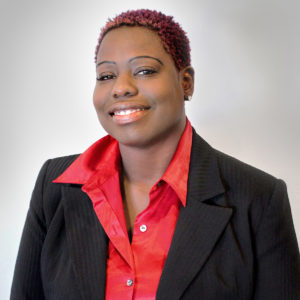 Eve Powers, Foster Care Marketing Specialist
Eve Powers, Foster Care Marketing Specialist
Eve has a strong commitment to helping foster youth and their families thrive and live successful lives. A former foster youth, Eve obtained her bachelor’s and master’s degree in Communications from California State University, San Bernardino, and is a certified Holistic Life Coach, motivational writer, self-help author and celebrity interviewer. Beyond the Trinity Youth Services blog, Eve’s articles can be found in numerous platforms including Foster Focus Magazine, Heart & Soul Magazine, BET Centric and Huffington Post. A passionate advocate for the LGBTQ community, Eve continues to educate, support and mentor foster youth throughout Southern California.
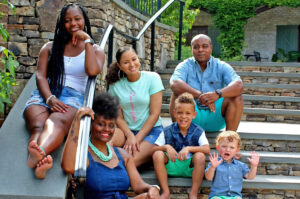
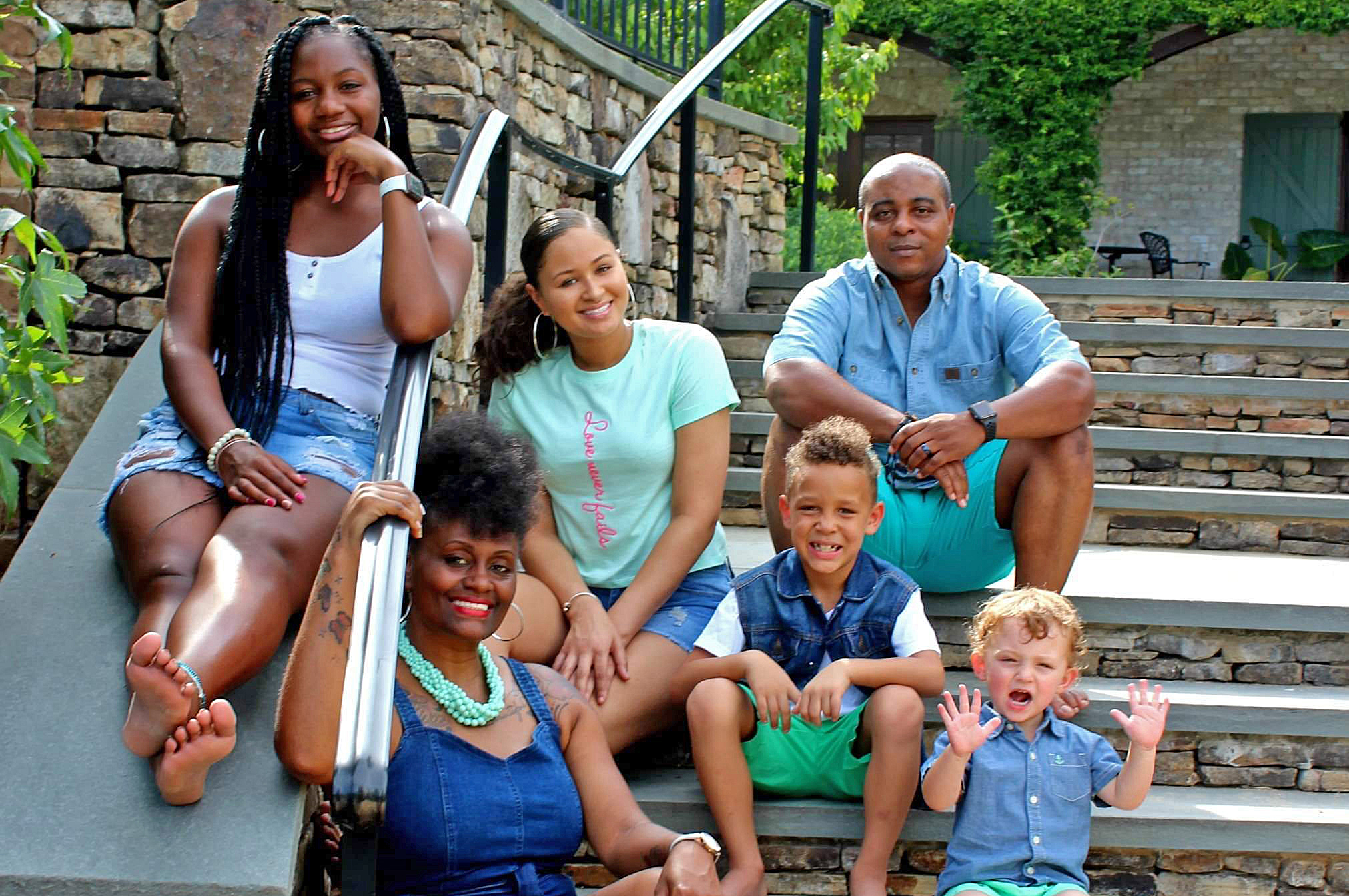
“There is a great need for good foster parents.” This is powerful advice from Mrs. Keia Jones-Baldwin, a nationally known, inspiring adoptive mom to four amazing children, ages 3 to 17. Mrs. Jones-Baldwin and her husband, Richardro, are the creators of “Raising Cultures” which has several very successful social media accounts with hundreds of thousands of followers.
The couple wed in 2010 and looked forward to growing their family, when tragedy struck. Mrs. Jones-Baldwin and her husband experienced heartbreaking miscarriages, which led them to being open to other options to fulfill their dream of having children.
“In 2016, my husband and I started the process of becoming foster parents after hearing an ad on the radio about the overwhelming number of children that were in foster care in our community at the time. When I did my own research and saw there were over 400,000 children in foster care throughout the United States, it broke my heart,” said Mrs. Jones-Baldwin.
“My husband and I knew we had the love, ability, and natural supports to be able to effectively foster. We prayed about it and never second-guessed our decision to move forward with the foster parent classes,” she said. Although some potential foster parents run into road blocks because one spouse isn’t sure, that wasn’t the case for Mrs. Jones-Baldwin, who happily exclaimed, “He never said he wasn’t on board, so I took that as a ‘yes’ and ran with it! When I initially told him about my thoughts on fostering, he listened and said that he’d be willing to try it. I don’t think either of us knew what we were getting ourselves into. It’s definitely an emotional rollercoaster, but so rewarding!”
After experiencing heartbreaking losses of their unborn children, Mrs. Jones-Baldwin wanted to work on healing the pain she had in her heart so that she could be the best she could be for her children. According to Mrs. Jones-Baldwin, “I knew I had to forgive myself in order for me to heal and be able to provide a loving and stable atmosphere for my foster children and biological daughter.”
“Forgiving myself allowed me to let go of all the shame, bitterness, anger, and guilt I had built up over the years of struggling through loss and grief from the miscarriages and not being fully attentive as a wife or mother. Once I forgave myself, I had the faith that whatever God’s will for my life was, so be it. I surrendered and His plan was far greater than I could have ever imagined,” she said.
Shortly after beginning their foster care journey, the Baldwin’s were blessed to care for their first child. “When we got the call for our first placement, we were obviously nervous but excited. We didn’t know any information other than the child was a biracial male toddler.”
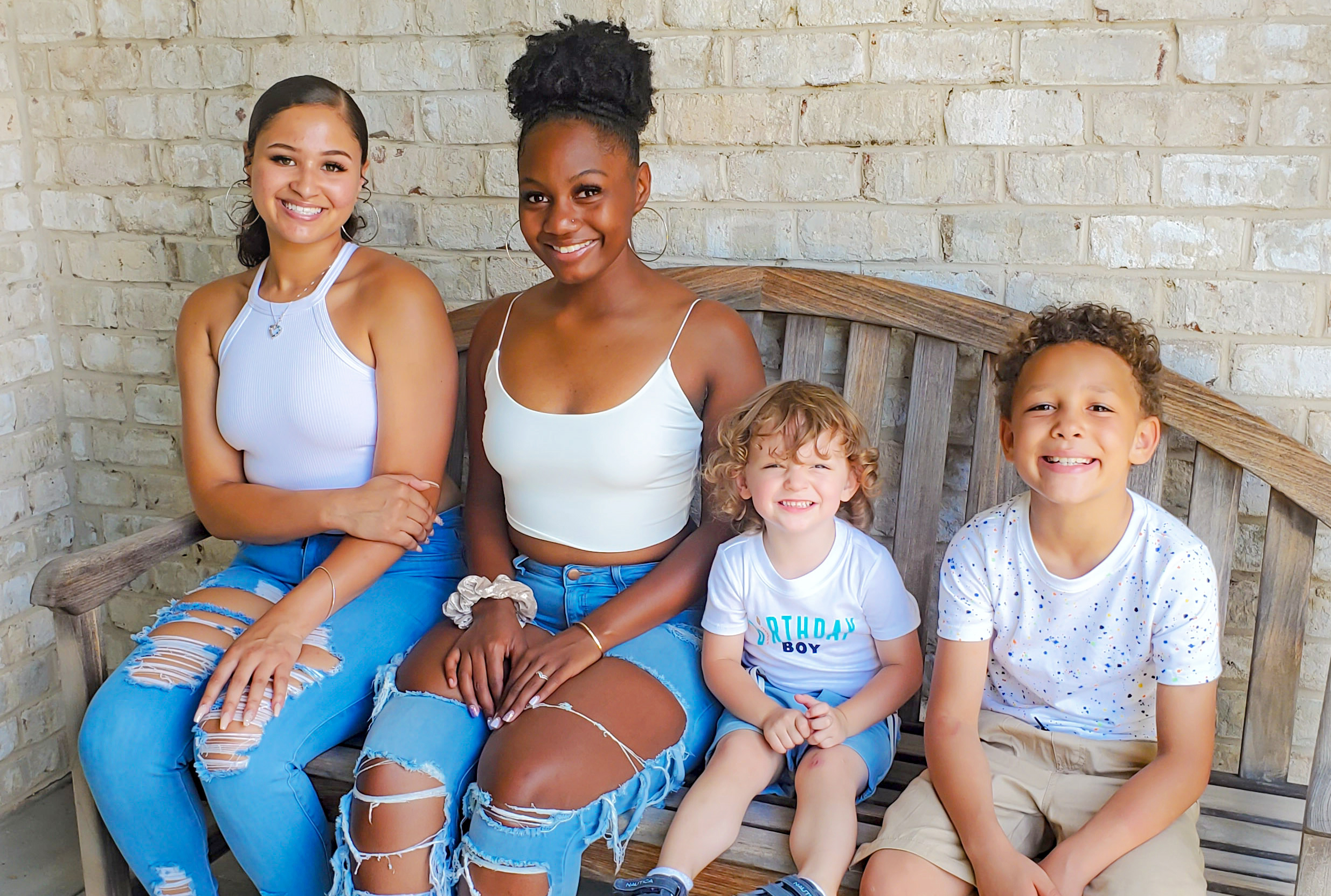
Becoming a foster parent taught Mrs. Jones-Baldwin more lessons about raising children. “The most important lessons I learned that helped me become a successful foster parent is allowing the child the opportunity to heal and be themselves. Don’t try to be, or take place of, “mom.” Give the child the chance to get to know you and determine respectfully how they will address you. Be understanding and compassionate. Allow them to tell their own stories in their own way. Most importantly, keep in mind that the child may not have your same religious, political, or cultural views. It’s not your place to ‘change or convert’ them. It’s your place to support, encourage, guide, and keep them safe until renunciation,” said Mrs. Jones-Baldwin.
As a devoted parent, Mrs. Jones-Baldwin teaches her children important life lessons, including, “Always respect others, no matter their race, gender, sexuality, religion, ethnicity, or culture. Extend grace to others as God has to us. See color, appreciate and celebrate our differences. And no matter what the world may try and tell you, you all are and will always be ‘real siblings!’”
Being a mom to children of different ages, including teenagers, is “hectic,” according to Mrs. Jones-Baldwin. “I’m constantly breaking up wrestling matches between the boys and trying to avoid being in a Tik Tok video with the girls,” jokes Jones-Baldwin. As a mom to two teenagers, Mrs. Jones-Baldwin believes that the myths about teens are not true. “Teenagers already know how to feed, bathe, and are relatively independent! Some of the myths about teens in foster care are, ‘they all runaway or steal, or do drugs.’ That’s not true, most teenagers really want stability and someone to understand their situation without judgment,” she says.
In her own words, Mrs. Jones-Baldwin describes her family as, “A blended, interracial family who is passionate about breaking down color barriers, stereotypes, prejudices, and racism with love.” Although the family is doing admirable work, they have had their share of criticism. “This is definitely not for the faint of heart. You have to be ready to deal with racism, prejudices, hatred, and discrimination in a way that doesn’t compromise who you are as a person,” she said.
“Teach your children that your family is ‘normal,’ and nothing is wrong with celebrating differences.” A revered mother, Mrs. Jones-Baldwin feels very grateful to have her children. According to Mrs. Jones-Baldwin, “They’ve had more of an impact in my life! I did nothing special. I’m sure one day my children will tell me how thankful they are for me and I’ll cry. Until then, I’m just so grateful they call me mom and say they love me!”
For those who are thinking of fostering, Mrs. Jones-Baldwin’s advice is, “Don’t go into fostering if you solely desire to adopt. Adoption is the last resort of the fostering plan and can take years. The goal of foster care is reunification and respect — trust the process. Secondly, build positive relationships (if possible and safe) with the biological parents. You’ll be amazed how much the kids will start trusting you. The kids want to see you embrace and foster a relationship with the bio parent. Under no circumstances should a foster parent bash a bio parent to the child.”
Mrs. Jones-Baldwin and her husband followed the process through to adoption for each of their foster children when reunification with biological family was not possible, and are now officially a family of six.
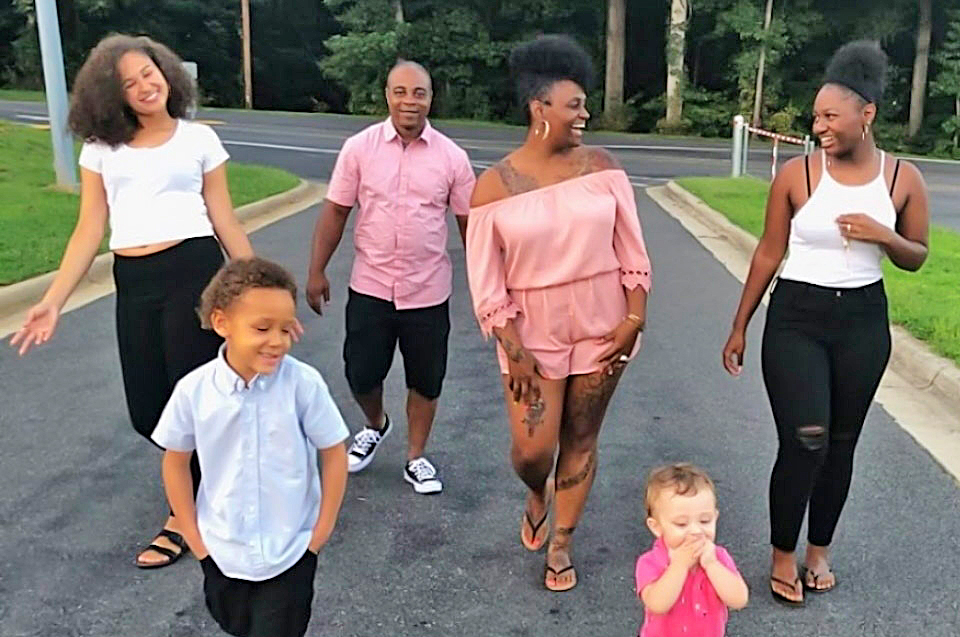
After reaching so much success on social media, and inspiring so many people to foster or adopt, when asked what’s next for 2021, Mrs. Jones-Baldwin said, “Good question! I don’t really know. It still seems surreal to me! I do know that my book will finally be published this year and a new podcast is on the horizon!” To learn more about this amazing family, visit their website.
If you want to learn more about becoming a foster or adoptive parent, please schedule a virtual Foster Care Orientation, by calling 909-825-5588 Ext. 230, or by sending an email to epowers@TrinityYS.org.
 Eve Powers, Foster Care Marketing Specialist
Eve Powers, Foster Care Marketing Specialist
Eve has a strong commitment to helping foster youth and their families thrive and live successful lives. A former foster youth, Eve obtained her bachelor’s and master’s degree in Communications from California State University, San Bernardino, and is a certified Holistic Life Coach, motivational writer, self-help author and celebrity interviewer. Beyond the Trinity Youth Services blog, Eve’s articles can be found in numerous platforms including Foster Focus Magazine, Heart & Soul Magazine, BET Centric and Huffington Post. A passionate advocate for the LGBTQ community, Eve continues to educate, support and mentor foster youth throughout Southern California.
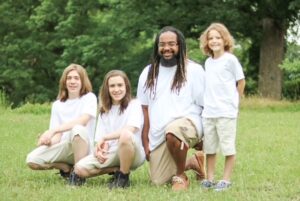
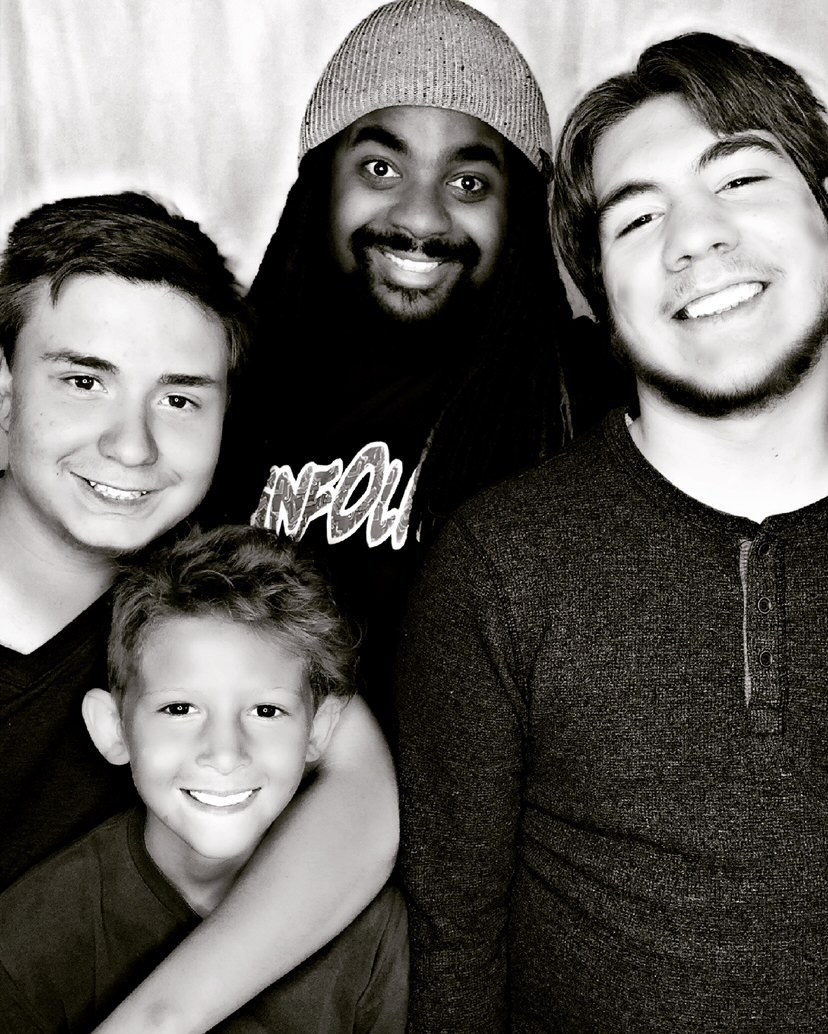 Barry Farmer once believed that he would live a regular life, but at the tender age of 20, he started an unforgettable journey that would set him on a course that would forever change his life.
Barry Farmer once believed that he would live a regular life, but at the tender age of 20, he started an unforgettable journey that would set him on a course that would forever change his life.
“I wanted to live a peaceful, simple life and do the right thing. I was looking forward to becoming a trucker, so I picked up an employment guide. As I was reading through the pages, I saw an advertisement to become a foster parent. To qualify, you had to be 18 years–old. Since I was already working with kids, and I had already lived it by being in kinship care, I thought on it, and decided to make the call,” says Barry.
Although Barry didn’t know what to expect, he was passionate about making a difference. He decided to go through the process of becoming a certified foster parent. “They set up the interview and I met the director of the agency. I didn’t think she would take me seriously, but she did, and I had a great interview. It took a while to get my first placement, but I kept my license active,” says Barry.
Barry’s first placement was a 16-year-old-boy from a group home. Barry recalls, “He was labeled by the agency as being difficult, but we were able to bond and he started calling me ‘Dad.’ He was eventually placed in another home because living in the inner city where I was living, wasn’t a good fit for him.”
Having his first experience as a single foster father made Barry even more determined to help youth and provide stability for them. One month later, he received a call regarding a 7-year-old boy who needed placement. Barry was excited to open his home to another child, but was shocked when his child was different than he expected.
According to Barry, “I was looking for a black kid, but when I got there and walked up to the table, I saw a white kid. I immediately thought, ‘this can’t be the right table.’ But it was. The social worker said he needed to be in a home by himself. I decided to take him in as my own child. I had godsons who came over a lot, so I brought them over to meet him. He was elated to see kids and they got along well. He was never violent or had any behaviors that were not typical of an 8-year-old. He’s now 18 years old, and is one of my adoptive sons.”
Although Barry never intended to adopt, and was committed to sending youth back home with their families after they became stable, he found himself open to the idea after learning it was possible through foster care. When asked if he had any obstacles or challenges about being a single, African American man raising Caucasian boys, he stated, “It’s surprising, but no. I have not had any obstacles.”
“I often talk to other foster parents who are raising children of different races, and they have experienced racial tensions. But when my kids and I go on road trips, visit water parks, or are in public, I have never had anyone approach me, and say, ‘Where did you get them from?'”
Being a single foster-turned-adoptive-father has many perks, according to Barry. What he loves most are the experiences he’s shared with his children, and being their consistent father figure for the last 10 years. He also appreciates having the ability to provide his sons with important life lessons, such as, there are natural consequences of poor choices. He tells his sons that he can’t pull them from the fires they create and that they will work hard and make mistakes.
What Barry loves most about fostering or adopting teens is that there are a lot of firsts. “You can teach them how to drive, take them on a plane, or do other things they’ve never experienced. Unlike younger kids, you can get an honest reaction from them about the things they like or don’t like. So, even though it takes time to build trust and bond with older children, they can at least tell you why things aren’t working,” says Barry.
For men who want to foster, but aren’t sure if it’s right for them, Barry says, “Just do it. Figure out your routine and see if your job is flexible. You can do it if you have a village behind you. I rarely got help from others, because I didn’t want my children to think I wasn’t coming back for them. My younger son once thought that if I had someone else watch him, I wasn’t coming back to get him,” says Barry.
One of Barry’s biggest determinations for being a successful foster father, was thinking, “What would your son think?” He says he used to be a guy who was going nowhere and was working a regular job. According to Barry, “Someone told me that I was beyond working every day for someone else because I had talent. They also told me to stop settling for the clouds and reach for the stars.” Barry did just that, and is now a very successful father. Some of his accomplishments include being the spokesman for Adopt Us Kids, foster care adoption advocate, speaker, mentor, host of The Barry Farmer Morning Show with Sharon Lizzy a nationally syndicated radio show based out of Richmond Virginia and The Foster Care & Adoption Life Talk Web Series, as well as the creator and administrator of one of the largest online support group for foster care and adoptive families. With his show, Barry enjoys connecting with various individuals from across the country, giving them a platform to share their stories and life’s work.
To Barry, 2021 is the year of growth-and is the re-launch of 2020 dreams. Barry’s goals for 2021 is to expand his mission by advocating for older kids. He wants to use his platform to make people aware of the kids who are waiting, so that they will get a chance to find loving homes and live better lives. For more information about Barry Farmer, visit www.barryfarmer.com/.
If you want to learn more about becoming a foster or adoptive parent, please schedule a virtual Foster Care Orientation, by calling 909-825-5588 Ext. 230, or by sending an email to epowers@TrinityYS.org.
 Eve Powers, Foster Care Marketing Specialist
Eve Powers, Foster Care Marketing Specialist
Eve has a strong commitment to helping foster youth and their families thrive and live successful lives. A former foster youth, Eve obtained her bachelor’s and master’s degree in Communications from California State University, San Bernardino, and is a certified Holistic Life Coach, motivational writer, self-help author and celebrity interviewer. Beyond the Trinity Youth Services blog, Eve’s articles can be found in numerous platforms including Foster Focus Magazine, Heart & Soul Magazine, BET Centric and Huffington Post. A passionate advocate for the LGBTQ community, Eve continues to educate, support and mentor foster youth throughout Southern California.

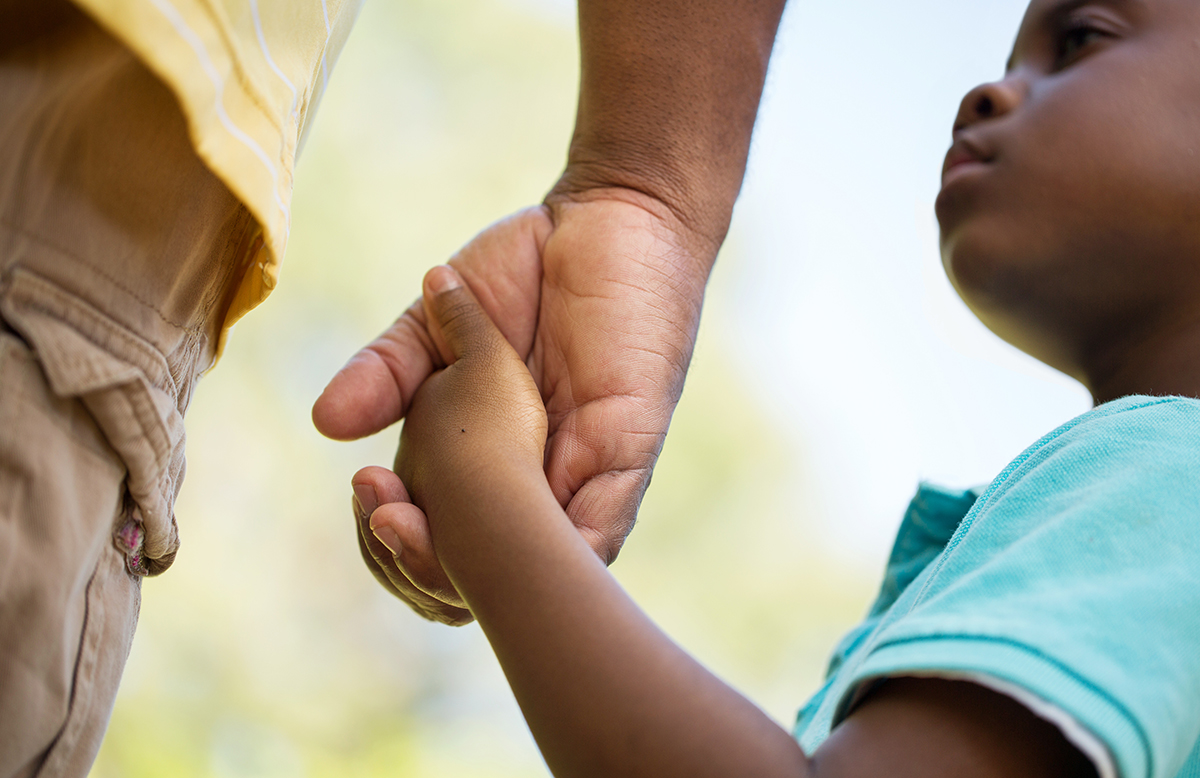
In honor of Black History Month, Trinity Youth Services (TYS) would like to shine light on the daunting effects of generations of systemic racism on children of color, particularly Black children, within the American foster care system. We would also like to highlight some of the important work TYS is doing to ensure that every child finds the warmth and safety of a loving home, and to share how you can get involved in making a significant and lasting difference in the lives of children.
In 2019, Child’s Rights reported a third of children entering the U.S. foster care system were young people of color. While on a larger scale the rate of children entering foster care has decreased, what remains at stake is the state of being for those minority groups within the system.
American Academy of Pediatrics found that children placed in foster care were in poor mental and physical health relative to children in virtually every other type of family situation. This was found, in part, to be a result of environmental factors such as a child’s demographic characteristics. Given Black children face a greater number of environmental issues, they are more susceptible to environmental racism that as a result, causes a Black child to be more likely diagnosed with a learning disability, depression, anxiety, behavioral issues, obesity, and speech/hearing/visual issues.
According to KidsCount, Black children in foster care were 32% less likely to be adopted then their white counterparts, leaving them without permanency and potential to heal from the trauma they have experienced and posing them at a higher risk to undergo more trauma. Since Black children are also more likely to remain in foster care and less likely to be reunified with their families, Child’s Rights reported that they are more likely to be placed in group care, age out in greater numbers, and become involved in the criminal justice system, all of which have lasting effects on their lives. In an article written by American Academy of Pediatrics, they found that when any child enters foster care and especially when they remain in foster care, they face development issues that affect their relational attachments, sense of time and their responses to psychological stress. So, for a Black child, whose rate of stay within the system is longer, their likelihood for experiencing further environmental racism, greater levels of mental and physical health issues, lack of permanency, and developmental delays are greater.
TYS is committed to fighting against systematic racism by pushing toward inclusiveness and equality through our Diversity, Inclusion, Value and Equity (DIVE) team. Staff members throughout the entire agency have been meeting biweekly to allow for discussion of various topics such as equitable practices, positive reinforcements and U.S./political climates. In addition, staff have been attending “Equity in Action” webinars created by Claremont Lincoln University (CLU), where CLU faculty members have been sharing resources and ideas relating to the four domains that make up their Claremont Core: Mindfulness, Dialogue, Collaboration, and Change. Their Claremont Core aims to foster positive change and growth for “mindful inquiry, skillful dialogue including collaboration with diverse viewpoints.”
To build off the TYS staff’s DIVE program, a few members have also been working with the Claremont McKenna University (CMU) SOURCE team, who have been working on creating a curriculum for TYS’s foster youth. The program consists of a five-month long curriculum that aims to create an open and safe environment that allows youth the space to discuss their experiences and opinions regarding, but not limited to, D.I.V.E.S topics (Diversity, Inclusion, Values, Equity, and Social Justice). The CMU SOURCE team has put in a tremendous amount of work in to build a solid and impactful curriculum for the youth. TYS will continue to work closely with the CMU SOURCE team so that together they can create a curriculum that is sustainable.
It is crucial that we continue to shine light on the generations of systemic racism Black children are facing in the foster care system. TYS is dedicated to do so by continuing to advocate and break down barriers for Black children. Join us in the fight against racism.
Ways You Can Help:
Foster or Adopt: TYS’s mission is to help children and families create a better future. You can change the trajectory of a child’s life by becoming a resource parent and providing the love and support children need to be successful in life. Contact TYS representative, Carlos Lopez at clopez@trinityys.org or 888-346-9645 to learn more about adopting or becoming a foster parent.
Donate: If you cannot foster or adopt, consider donating to organizations like the Children’s Foundation of America, who help provide resources of the highest quality to children in foster care. Your donation helps keep siblings from getting separated in foster care, provides scholarships and other essential needs to help create positive outcomes for foster youth.
Volunteer: Contribute your time by volunteering to help advocate and raise awareness for the needs of children in foster care. Use social media to share articles like this one or sign up here to participate in a volunteer project.
 Isabel Millward-Pena, Communications Specialist
Isabel Millward-Pena, Communications Specialist
Isabel contributes content for our social media, blog, newsletters and promotional materials. She recently earned a bachelor’s degree in English from California State University San Bernardino and is currently working on her master’s degree. Isabel began working at Trinity as an intern, was hired as clerical, and was then promoted to communications in our development department. Prior to her work at Trinity, she was a substitute instructional aid and a supervisor at Starbucks. She has also volunteered as an aid at local elementary schools and notably achieved “Partner of the Quarter” at Starbucks in 2017. Isabel is an active member of Trinity’s Diversity, Inclusion, Value and Equity (DIVE) team and volunteers her time at the Children’s Foundation of America.


Although there is a very high need for traditional foster and adoptive families throughout Southern California, there is an even bigger need for Intensive Services Foster Care Parents. Foster youth who experience physical or emotional trauma are often labeled as ‘troublemakers,’ due to their coping mechanisms. The truth is, unresolved pain from experiencing abandonment, loss, and abuse cause some children to act out and engage in behaviors that don’t serve them.
In an effort to help at-risk youth receive the support and guidance they need to heal and live successful lives, Trinity Youth Services, an accredited, award-winning Foster Care and Adoptions Agency, established an Intensive Services Foster Care Program (ISFCP). One major benefit of this program is that foster youth who need extra care are able to live in a loving family-based setting, which will help them feel more secure, experience a sense of belonging, and receive extended hands-on support and redirection.
According to Jackie Jakob, Trinity Youth Services’ Director of Foster Care and Adoptions, “Trinity Youth Services first implemented the ISFC program to assist our experienced resource parents with serving youth that required more services than the traditional foster care model offered. Trinity Youth Services is designed to offer a stable, normalized living environment in order to help youth thrive in a family-based setting.
Youth receive hands-on guidance from a caring, supportive team of professionals that includes therapists, support counselors, and social workers who utilize trauma-informed practices. Resource parents also work very closely with the team to help each child achieve progress in their mental health and positive behaviors.”
Children in the ISFC program at Trinity Youth Services are flourishing due to the combined effort and care they receive from therapists, support counselors, social workers as well as their foster families. Youth learn how to regulate their emotions and behaviors in positive ways, model love, and develop healthy attachments to caregivers.
Being an ISFC Foster Care Resource Parent can be a very rewarding experience. According to Trinity Youth Services ISFC Resource Parent, Alice Brown, “There are a lot of children who don’t get that last chance before they go to a group home. No matter what challenge presents itself, you can always lead the way to a brighter future. Don’t take anything personal. All they need is a chance and for someone to not give up on them.”
To become an Intensive Services Foster Care Parent, or to receive additional information, please call Eve Powers at 909-825-5588 ext. 230, or send an email to epowers@TrinityYS.org. Click here for more information about Trinity Youth Services’ programs.
 Eve Powers, Foster Care Marketing Specialist
Eve Powers, Foster Care Marketing Specialist
Eve has a strong commitment to helping foster youth and their families thrive and live successful lives. A former foster youth, Eve obtained her bachelor’s and master’s degree in Communications from California State University, San Bernardino, and is a certified Holistic Life Coach, motivational writer, self-help author and celebrity interviewer. Beyond the Trinity Youth Services blog, Eve’s articles can be found in numerous platforms including Foster Focus Magazine, Heart & Soul Magazine, BET Centric and Huffington Post. A passionate advocate for the LGBTQ community, Eve continues to educate, support and mentor foster youth throughout Southern California.


As the school semester approaches during the COVID-19 pandemic, families and caregivers are having to look at distanced learning options for their children. To study remotely, computers are essential. Below are some resources for low-income families to receive a free computer:
Computers for Kids
Call: 434-817-1121 or Text: 434-214-0153 — computers4kids.net
C4K offers free computers to K-12 students that receive government assistance.
The On It Foundation
Call: 305-244-6454 — theonitfoundation.org
This organization provides free computers to K-12 students that participate in free or reduced school lunch programs.
Computers with Causes
Call: 888-228-7320 — computerswithcauses.org
An organization that donates computers to K-12 students, foster children, and disabled veterans in need.
Children’s Foundation of America
This organization will be providing school supplies to youth at Trinity Youth Services, as well as scholarships. Information can be obtained through Trinity staff.

Jenelle Phillips, Director of Development
Jenelle’s role is to identify and access resources for youth in our care. She is also responsible for maintaining a distinctive look and voice for Trinity through our online presence, media and community outreach. Before joining the Trinity team in 2016, Jenelle worked in the newspaper/magazine industry for nearly a decade as an award-winning graphic designer, photographer, writer and editor. Jenelle earned a bachelor’s degree in communications at California State University Fullerton. Jenelle is very involved in the community and is active in her church.

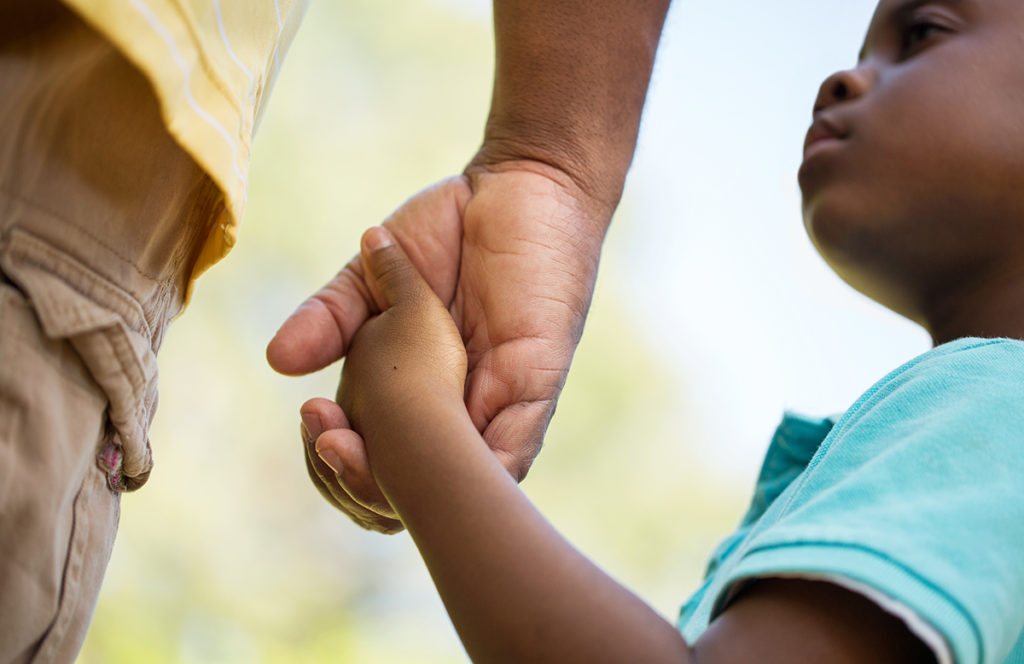
How did you get into fostering and why was it important to you?
I was introduced to foster care in 1988. My mom was a foster parent who turned her home into a group home. She did that for several years and I was her back-up sitter, basically her right hand. I moved away from fostering to pursue college and my life direction changed when I got married and had my own children; it was conducive at that time. Eventually, I began thinking about going back into foster care as my children became teenagers.

Several years later, I made a decision that fostering was something that I truly desired to do. I became a foster parent because there are so many children in the system and there is a viable need for foster parents. I worked in the medical field and we’d hear cases about foster children being removed from home for being abused and neglected. This prompted me to want to go back to being in the fostering system. Knowing there was a need, having the heart to heal and love, and wanting to leave a mark on this earth, all made me want to foster even more.
How long were the children you fostered in your care before you adopted them and what are their names and ages?
The children were in my care for 3 ½ years. Their names are Carl (12) and Donnie (10).
What was the biggest challenge you’ve overcome with your sons?
The biggest challenges we overcame was the boys’ desire to accept love because they didn’t know what love was or what love looked like. The other challenge was teaching them how to appreciate and reciprocate love, as well as manage behaviors due to previous trauma.
How were you able to overcome challenges?
Loving the boys was very easy because love doesn’t stop. Love is patient, love is kind, and love is long-suffering. It’s a continuous action we give to one another, so regardless of what the child says or does, unconditional love is exuberated from me to them, no matter what. My sons had to know that no matter what, I was going to love them, make sure that they were safe and secure and know that I would provide them with stability consistently. Over time, they were able to see that and say, “Oh, she does care about me.” For example, Carl would demonstrate poor choices that would lead into consequences at school which would trigger behaviors. He would say “What I did was really, really bad and you’re not upset with me?” Even though I may have been upset with him on the inside, I didn’t allow my emotions to govern how I responded which could have possibly made him withdraw from me. I still demonstrated love, but I let him know that I was unhappy and disappointed with the choices he made. As far as the behaviors are concerned, having continuous conversations with Carl and Donnie were important; letting them know that they are a reflection of me because they are considered my children, helped them want to do well. I demonstrated love and compassion, and my sons reciprocated it. I’d give them kudos and/or reward them for making positive choices. With love, consistency, and giving a little direction on how things could have been handled differently, my sons did something they’ve never done before and became someone they’ve never been.
Were there any challenges you faced in the adoption process that Trinity helped with?
When paperwork needed to be processed, completed and tuned in, Trinity completed their paperwork and submitted documents to the county without hesitation. They literally walked me through the process and ensured that all processes were efficient and effective. When the County started requesting information from them, they were right on it, so the process went faster than normal. I can say that everything I’ve ever needed, Trinity has always been there. So, walking me through the process, coming out, and giving me reminders were just some of the things Trinity did for me. My social worker, Mrs. Dana has always stood by my side and met my needs when I needed direction, support, or just an ear to listen as well as Mrs. Laura, Mrs. Ashiko, and Mrs. Lupe. In fact, the whole team is always accessible, and that’s the one thing I appreciate. I have not seen anyone on my children’s caseload drop the ball.
What are some of the traits of a good foster parent?
They should possess the trait of being able to see the children as their own children. If they can’t, that will put a barrier between the child and the foster parent because the children will feel it. Be willing to stick it out irregardless of what it looks like in the moment; give the children time because they have been through a lot of trauma and had a lot of things happen to them where they had no choice in the matter. They are not going to recover in one day. Don’t let one incident be the deal breaker for you keeping a child. Continuously pour love into them. Love changes and kills things the babies are inflicted with. Don’t take anything personal. Whatever is said, it is not personal. Children don’t intentionally try to hurt you. Being separated from family, being with someone new that may or may not be family, and enduring challenges they’ve been through, including neglect, can be difficult for them; its a process.
What are some skills good adoptive parents possess?
Take the step to be committed to a child for the rest of their lives, no matter what. Being an adoptive parent is taking on more accountability, but you’ll have the ability to impact lives even more, because you’ve taken the fear of the unknown away from them. To me, adopted kids are your children. The boys and I are closer now. They are proud, happy, and shout from the mountaintops, “This is my mom.” So it’s up to us to show them what family life looks like and break the cycle that is negative. Continue to see them as your children, and everything will work out fine. So, while I have my children, it’s my purpose to help them love themselves, know what love feels like, and know how to have a healthy relationship and demonstrate love to their own family. At some point in time, they’ll want to see their family as the door is open. I’ve left it open for them so they can show their families how to love in a healthy way, build their self-esteem, and break cycles. All these seeds are being planted, and my hope is that once the seed is planted and I’ve watered it, my sons can go back to their families and have a love relationship with them.
How has your life changed since becoming a foster/adoptive parent?
I’ve been obedient to God, and I am employed at the school district, so I have the opportunity to work with the kids at school and be a touchstone in their life. My mission is to love God and love others. I am a Trinity Ambassador, so I get to talk about how awesome Trinity is as an agency. As a foster parent, I attend conferences, mentor kiddos, work with behaviorally challenged children in my home and at work and elevate children to another level. I think I am admired by many because people can see the changes in my children and the impact I have working with children whom may be having or had a difficult childhood. I believe once you have dealt with your own issues thoroughly as an individual, you have a message to give and a story to share with others that can impact the world.
Everyone talks about how the children have changed, and how they’ve grown up. I feel like my purpose is being fulfilled and that’s the greatest gratification. I found a deep-rooted happiness in fostering and nothing can take it away. I’m really appreciative knowing that my purpose is being fulfilled, and I get to watch these babies grow up and become grown men. Even if they don’t stay with me forever, they told me that they’d come back. I had a child who didn’t stay with me, who wrote me all kinds of letters of appreciation, telling me how I touched his life and helped him believe in himself. He walked away believing in himself and knowing he can do anything he puts his mind to do. He was loved and he had a purpose for being in my home as well.
I really believe that it’s up to us to keep kids off the streets, out of jails, and help them stop making poor choices. I believe that God placed it in my heart to save as many of His babies as possible. He challenged me to step out of what was comfortable for me, which was just raising my own kids and my grandchildren. Fostering and adopting is helping me grow, helping the children grow in an effort to live life on life’s terms, and fulfilling my purpose in the world. I want God to be pleased with me as His servant.
To learn more, please call 888-346-9645 and check back for more helpful tips on how you can support your community!
 Eve Powers, Foster Care Marketing Specialist
Eve Powers, Foster Care Marketing Specialist
Eve has a strong commitment to helping foster youth and their families thrive and live successful lives. A former foster youth, Eve obtained her bachelor’s and master’s degree in Communications from California State University, San Bernardino, and is a certified Holistic Life Coach, motivational writer, self-help author and celebrity interviewer. Beyond the Trinity Youth Services blog, Eve’s articles can be found in numerous platforms including Foster Focus Magazine, Heart & Soul Magazine, BET Centric and Huffington Post. A passionate advocate for the LGBTQ community, Eve continues to educate, support and mentor foster youth throughout Southern California.


The Coronavirus has shaken families across the world, including Trinity’s resource parents. If you are concerned about how to keep your family safe, and what to do to keep your children occupied while they are out of school, here are some helpful tips that will make life easier in these challenging times.
Have a Family Meeting
Although we are all still learning details about the Coronavirus, we can communicate what we know to our family members about how to stay safe from contracting the virus. Keeping your hands washed, distancing yourself from others, and avoiding touching your face are simple ways to stay healthy. For the latest updates, visit the CDC website.
Reduce Stress
Although most Americans have been ordered to stay home, there are things you can do to make it more enjoyable for your family. Some examples include watching funny movies, playing board games, reading a book, watching educational videos, cooking together, or having a dance contest/talent show. All of these things will bring you closer together and will allow you to have fun, even during this stressful time.
Help Your Child Deal with Their Emotions
For children in foster care, the affects of the Coronavirus may leave them feeling even more isolated, not being able to see their families, go to school, engage in their usual activists or be with their friends. If your child is showing signs of sadness, reassure them that you are there for them. Encourage them to make phone calls, utilize FaceTime, Skype or Duo. They can also write letters to their families, or send them emails in order to help them stay in touch.
Check back for more helpful tips on our blog during this unique time. We are wishing all our resource families safety and are here to support you during this challenging time.
 Eve Powers, Foster Care Marketing Specialist
Eve Powers, Foster Care Marketing Specialist
Eve has a strong commitment to helping foster youth and their families thrive and live successful lives. A former foster youth, Eve obtained her bachelor’s and master’s degree in Communications from California State University, San Bernardino, and is a certified Holistic Life Coach, motivational writer, self-help author and celebrity interviewer. Beyond the Trinity Youth Services blog, Eve’s articles can be found in numerous platforms including Foster Focus Magazine, Heart & Soul Magazine, BET Centric and Huffington Post. A passionate advocate for the LGBTQ community, Eve continues to educate, support and mentor foster youth throughout Southern California.


Do you love being a foster parent, and want to add another member to your family? Opening your home to a teenager could be a great choice! There are many benefits to raising a teen. Contrary to popular belief, teens want a loving family, stability and guidance just like any child would. Trauma-affected teens have an even stronger desire to have a connection to a parental figure.
Did you know that teens who do not have a caring adult in their lives often suffer from suicide ideation, depression, and lack a positive self-identity? According to a recent study, teens without positive role models often find it difficult to find employment and suffer from a variety of mental health challenges.
If you have the heart to change a young person’s life, here are some reasons to consider fostering a teen:
- Teens Are More Independent: Unlike raising infants or small children, teenagers can dress themselves, catch the bus to school on their own, wash their own clothes and help with chores around the house.
- Teens Can Teach You New Things: Teenagers often know the latest tech gadgets, hairstyles and fashions. Since they attend school, they can teach you about the things they’ve learned and give you a fresh perspective on a variety of topics.
- Raising Teens Can Be Fun! Teens can be great company when they get to know you and feel safe. When they feel like they are a part of a family, and are loved unconditionally, they will often participate in family game night, attend events with you and even plan family outings.
- Create Lasting Bonds: As teens transition to adulthood, many stay in touch with their foster parents, and even visit them. You can create a unique bond with them that lasts a lifetime. Since they are closer to adulthood than smaller children, they can put your teachings and the skills you taught them directly into practice. You may see the impact you’ve made on their lives and the share in their successes.
- You Can Make a Difference by Sharing Your Life Experiences: Teens can create an emotional bond with people they feel understand them. When you discuss some of your life experiences, especially those that they can relate to, they can learn from some of your past actions and make wiser choices. Sharing some of your story can truly help them.
- You Can Help a Teen Build A Strong Foundation: You can help a teen transition into a successful adult by teaching them life skills, helping them with their college endeavors, and giving them advice about relationships, friendships and employment. Your influence in a teen’s life can help them realize their full potential and create a new, successful life.
If you are considering fostering a teen in need of unconditional love and support, contact Trinity Youth Services at 888.346.9645 for more information.
 Florence Edwards, Foster Care Marketing Specialist
Florence Edwards, Foster Care Marketing Specialist
Florence has a strong commitment to helping foster youth and their families thrive and live successful lives. A former foster youth, Florence obtained her bachelor’s and master’s degree in Communications from California State University, San Bernardino, and is a certified Holistic Life Coach, motivational writer, self-help author and celebrity interviewer. Beyond the Trinity Youth Services blog, Florence’s articles can be found in numerous platforms including Foster Focus Magazine, Heart & Soul Magazine, BET Centric and Huffington Post. A passionate advocate for the LGBTQ community, Florence continues to educate, support and mentor foster youth throughout Southern California.


